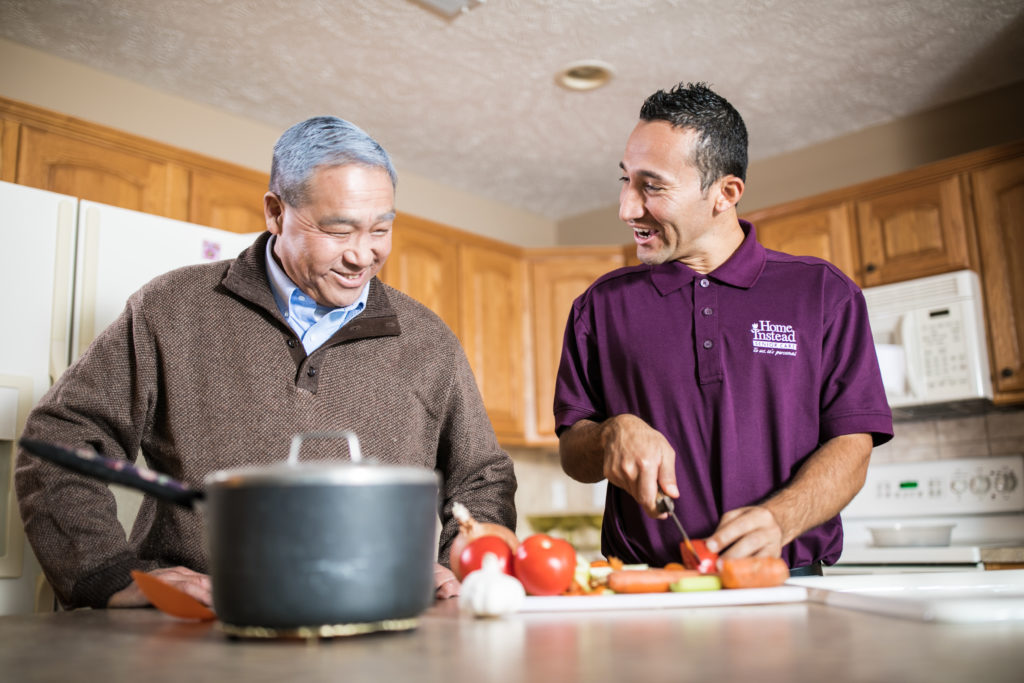It’s not uncommon for seniors to skip meals because they lack meal time companionship or believe, as they age, they don’t need to eat as many calories. While the nutritional misnomers prove challenging for seniors, they create opportunities for home care agencies to step in and provide much-needed services.
A recent study from Home Instead Senior Care UK shows that many seniors in Britain believe they can and should skip meals.
Although the study was specific to Britain’s seniors, that sentiment applies to aging individuals across the world, Lakelyn Hogan—gerontologist, a social expert on aging and Caregiver Advocate at Home Instead Senior Care—told Home Health Care News.
Nebraska-based Home Instead is an in-home care network that provides personalized care, support and education to help aging adults. The franchisor has over 1,300 locations providing over 70 million hours of care throughout the United States and 11 other countries.
One in five people over the age of 75 said they struggle to cook their own food, according to research Home Instead UK commissioned from YouGov on eating habits of older adults.
“Nutrition is important to everyone involved in the care of an older adult at home,” Hogan said. “If an older adult is not getting proper nutrition … that could put them at risk of additional health issues or health concerns.”
Keep it cooking
Meal preparation is a core service that many home care providers, including Home Instead, offers.
To help prepare staff, the company does basic staff training related to cooking, according to Hogan.
“We also have relationships with various disease-specific organizations that help us provide information to CAREGivers on chronic conditions that have specific dietary restrictions such as low sodium or low sugar,” Hogan said in a follow-up email.
In addition to basic staff training, the company also has aides that are skilled in cooking. It utilizes those staff members when a senior specifically requests more help with meal preparation, she added.
“We also realize that nutrition and meal prep is especially important after a hospital stay,” Hogan said. “Our CAREGivers can help older adults clean out the refrigerator and help them get groceries to set the older adult up for success and hopefully prevent readmissions.”
Home care agencies and caregivers need to know more than just being able to cook a meal, however. In order to deliver high-quality care and properly monitor nutritional intake, providers also need to be in tune with their clients’ dental health.
Hogan recommends that home care aides suggest a trip to the dentist if problems persist around eating; occasionally there can be a dental issue that is impacting eating habits.
Proper nutrition is an issue that family members are often aware of and concerned about, she said.
Over a quarter of people looking for home care for an elder relative were worried about their relatives eating habits, according to the YouGov research. Those findings suggest home care agencies with strong nutritional programs may have a competitive advantage in a fragmented industry.
“Sometimes older adults believe that, as they get older, they don’t need to consume as many calories,” Hogan said.
Calorie intake depends on an individual’s specific activity level, noted Hogan. She suggested patients see a physician in order to determine their exact caloric need, as individuals’ needs vary.
Malnutrition isn’t the only problem that seniors and the home care agencies taking care of them can face.
“Hydration is something that is really important for older adults,” Hogan said. “If an older adult becomes dehydrated it can cause a whole host of issues. Sometimes people just focus on the nutrition aspect but I think it is important to make sure the older adult is well-hydrated.”
Written by Kaitlyn Mattson




